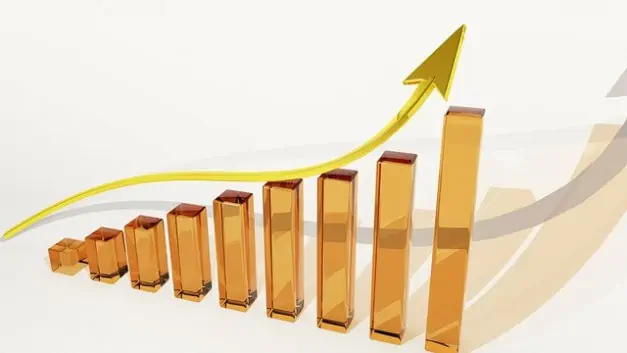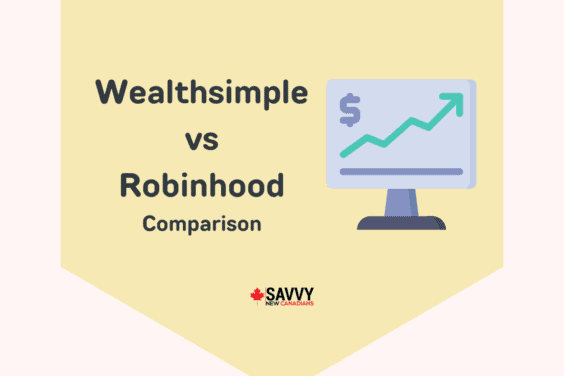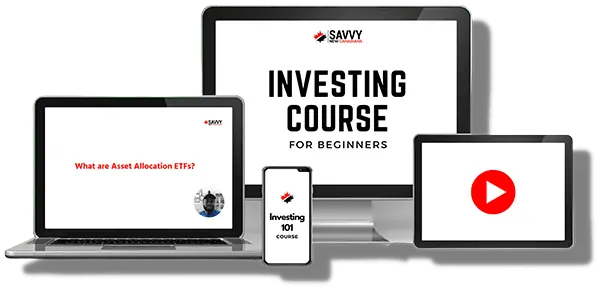Treasury securities are often misunderstood and overlooked investment assets in Canada. These debt securities are issued by both the Federal and Provincial governments as a way of raising capital.
They are 100% guaranteed and pay a set interest rate on your initial investment. In Canada, treasuries are among the safest investments that can be made and are a nice alternative to the volatility of the stock market.
Canadian investors can buy treasury securities directly from the government or through Treasury ETFs at any brokerage in Canada. These short-term treasury ETFs hold different assets like T-Bills (short-term maturity) and T-Bonds (long-term maturity).
Treasury ETFs in Canada provide a monthly distribution yield, but unlike buying treasury assets, investors do not get their initial investment back. Instead, the ETF provider will continue re-balancing the ETF with new treasury assets. You will collect the monthly distributions for as long as you hold the ETF in your account.
There is certainly a benefit to holding treasury ETFs in your portfolio during times of market volatility. Unfortunately, you will not see the same capital appreciation as you would with stocks or equity ETFs.
In this article, we will discuss and compare the 5 best T-Bills ETFs in Canada for 2024.
Best Short-Term Treasury ETFs in Canada 2024
Last year, Horizons ETFs unveiled Canada’s first-ever Ultra Short-Term T-Bill ETFs that trade on the TSX. These funds are 0-3 month T-Bill ETFs that provide investors with a nice distribution yield. Here are the details for the two new Horizons T-Bill ETFs.
Horizons 0-3 Month Canadian T-Bills ETF
Here are some key facts about this ETF:
- Ticker Symbol: CBIL.TO
- Inception Date: April 12, 2023
- Assets Under Management: $670 million
- Management Fee: 0.10%
- Number of Holdings: 7
- Weighted Average Yield to Maturity: 4.90%
This Horizons 0-3 Month T-Bills ETF holds a portfolio of ultra-short-term Canadian Government T-Bills. It has a low-risk rating and a weighted average yield to maturity of 4.23%.
CBIL.TO is a brand new Canadian T-Bill ETF that has yet to announce the official MER. The current Management Fees are 0.10%. The goal of this ETF is to provide exposure to Canadian
Government T-Bills are set to mature within the next three months.
Horizons 0-3 Months US T-Bills ETF
Here are some key facts about this ETF:
- Ticker Symbol: UBIL-U.TO
- Inception Date: April 12, 2023
- Assets Under Management: $281 million
- Management Fee: 0.12%
- Number of Holdings: 6
- Weighted Average Yield to Maturity: 6.58%
UBIL.TO is the Horizons 0-3 Months US T-Bills ETF with the same inception date as CBIL.TO. This fund has a slightly higher management fee of 0.12% and a 6.58% weighted average yield to maturity.
Best Treasury ETFs in Canada [Year]
1. TD U.S. Long-Term Treasury Bond ETF
Here are some key facts about this ETF:
- Ticker Symbol: TULB.TO
- Inception Date: November 18, 2019
- Assets Under Management: $232 million
- MER: 0.23%
- Number of Holdings: 18
- Current Yield To Maturity: 4.24%
This TD Treasury ETF holds long-term US Treasury Bonds with an average term to maturity of 22.09 years. It is available for Canadians in all registered and non-registered accounts.
Since its inception in 2019, the base investment has had a loss of -4.28%. Investors have no doubt made this up with the monthly distributions since 2019.
2. Vanguard Canadian Government Bond Index ETF
Here are some key facts about this ETF:
- Ticker Symbol: VGV.TO
- Inception Date: January 31, 2017
- Assets Under Management: N/A
- MER: 0.17%
- Number of Holdings: 419
- 12-month Yield: 2.91%
This Vanguard treasury bond ETF holds a broad range of Canadian government bonds with an average maturity term of 10.8 years. In total, it holds 455 different treasury bonds with maturity terms that range from under 1 year to more than 25 years.
As with most treasury ETFs, Vanguard Canadian Government Bond Index ETF pays out a monthly distribution with a yield of 2.91%.
Here are some key facts about this ETF:
- Ticker Symbol: XGB.TO
- Inception Date: November 6, 2006
- Assets Under Management: $861 million
- MER: 0.13%
- Number of Holdings: 448
- 12-month Yield: 2.84%
This treasury ETF from iShares is one of the oldest fixed-income ETFs on the TSX. It was first introduced in 2006 and has provided a cumulative return of 57.85% with an average annual return of 2.67%.
The Canadian government bonds held in XGB all have a maturity date of at least one year. With a low-risk rating and a 2.84% 12-month trailing yield, this iShares treasury ETF will help provide stability and income to your portfolio.
4. BMO Short-Term US Treasury Bond Index ETF
Here are some key facts about this ETF:
- Ticker Symbol: ZTS.TO
- Inception Date: February 28, 2017
- Assets Under Management: $21.6 million
- MER: 0.23%
- Number of Holdings: 138
- Yield: 1.89%
This BMO short-term treasury ETF was founded in 2017 and holds 138 US government treasury bonds with maturity dates of between 1 and 5 years.
Overall, ZTS has a higher MER than most of the other treasury bond ETFs on this list, and its 1.89% annualized distribution yield also comes up short.
5. BMO Government Bond Index ETF
Here are some key facts about this ETF:
- Ticker Symbol: ZGB.TO
- Inception Date: March 2, 2018
- Assets Under Management: $525 million
- MER: 0.17%
- Number of Holdings: 322
- Yield: 2.74%
ZGB provides exposure to 322 different Canadian government bonds with varying maturity dates. Since its inception in 2018, ZGB has provided a cumulative return of 4.14% and an average annual return of 0.68%.
Investors can own ZGB in both registered and non-registered accounts and collect an annualized distribution yield of 2.74%.
How To Buy Treasury ETFs in Canada in 2024
Treasury ETFs in Canada are available from most of the major ETF providers, including iShares, Vanguard, and BMO.
These funds are readily available on any Canadian brokerage, including discount brokerages like Qtrade or Questrade, where you can pay lower trading fees for your investments.
Qtrade

Up to $150 sign-up bonus
Trade stocks, ETFs, options, bonds, etc.
Excellent platform for newbies and seasoned investors
Competitive trading fees
Excellent customer service
Questrade

Trade stocks, ETFs, options, FX, bonds, CFDs, mutual funds, etc.
Get $50 trade credit with $1,000 funding
Low and competitive trading fees
No quarterly inactivity fees
Access to advanced tools and trading data
Top platform for advanced traders
Transfer fees waived
Related: Wealthsimple vs. Questrade: Which is Better?
Treasury Securities: T-Bills vs T-Bonds
The primary difference between T-Bills and T-Bonds in Canada is the time to maturity. T-Bills are short-term treasuries that typically expire within a year. T-bonds can range from a year to more than 20 years.
T-Bonds also pay out more interest to investors, which makes sense because of the longer period their capital is locked up. These treasury assets pay interest on a fixed schedule, usually once or twice yearly. T-Bills will only pay out interest at maturity.
Both T-Bills and T-Bonds can be purchased directly by auction from the Federal Government and at most Canadian brokerages. Note that holding T-Bills or T-Bonds in an ETF will yield a monthly distribution, which is far more frequent than holding the underlying assets.
With an ETF, there is a chance for capital depreciation, whereas, with T-Billls and T-Bonds, you receive your initial investment back at maturity.
How To Choose Treasury ETFs in Canada
As with most ETFs, choosing a fund with a low MER and high distribution yield is the secret to maximizing your returns over time.
With treasury ETFs, you can now select which fixed-income assets you want to invest in. Whether short-term T-Bills or long-term T-Bonds, you can choose the best-term treasury ETF that suits your investment strategy.
Benefits and Downsides of Treasury ETFs
Treasury ETFs protect your portfolio when the stock market or economy is seeing volatility. They are a defensive, low-risk investment asset that can stabilize your capital. It also provides a monthly income distribution, which is excellent for those seeking cash flow, like retirees.
The downside of treasury ETFs is low capital appreciation. Treasuries will rarely outperform the stock market on an average annual basis. A bear market for stocks is the perfect time to invest in treasury ETFs.
Methodology for Choosing Treasury ETFs
As mentioned, the key to choosing the best treasury ETFs in Canada almost always comes down to the MER and the distribution yields.
Most treasury bonds are high-quality bonds because the government issues them. Try to target treasury ETFs that hold bonds with a AA or AAA rating. Owning a nice mix of bonds also helps. In Canada, treasury ETFs can hold Provincial government, Federal government, and Municipal government bonds.
Finally, do not just go for the higher yield. Defaults can happen on higher-risk bonds, so ensuring the quality of the holdings can be more important than a higher yield.
Related:







Thanks! Was looking at CBIL (not sure if they have CBIL-U though…?)
@Ted: CBIL.U is the US one. I updated the Canadian version, as that should read “CBIL.”
ok thanks